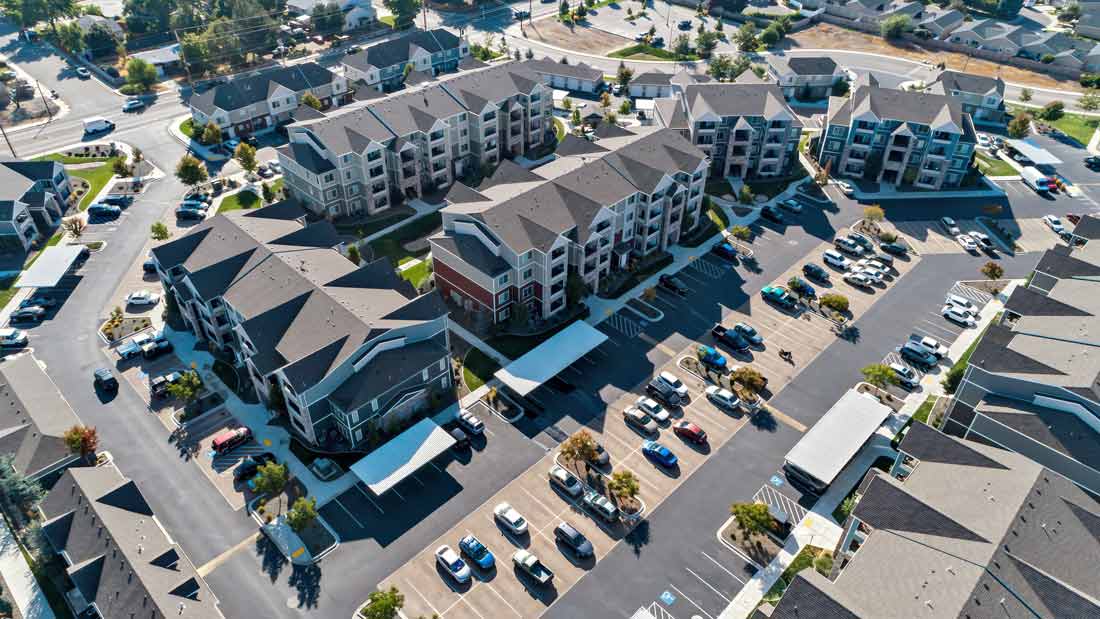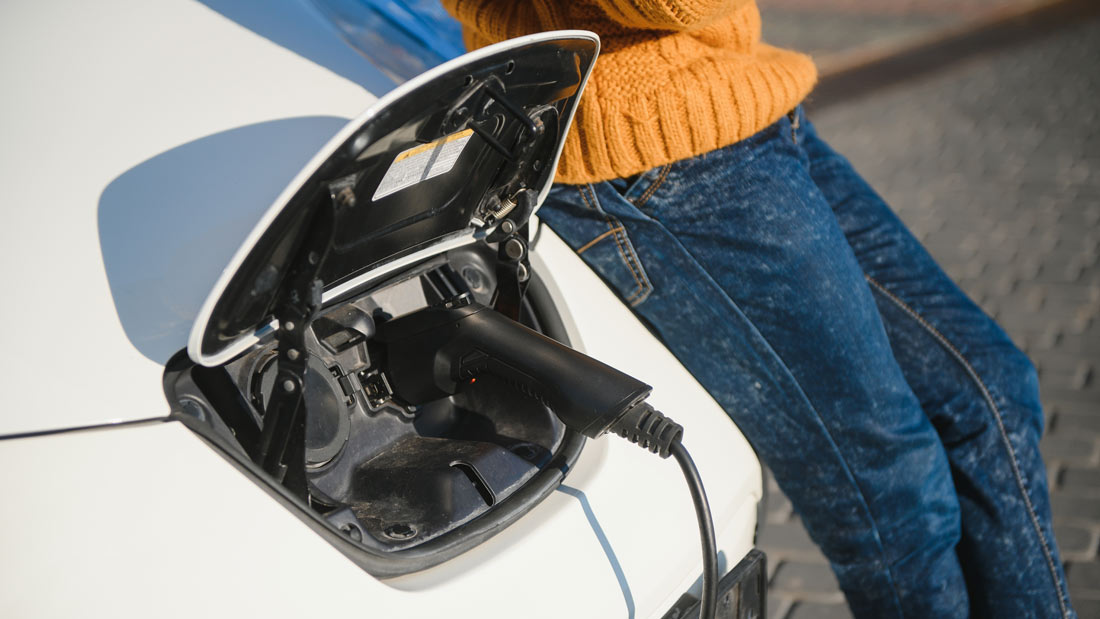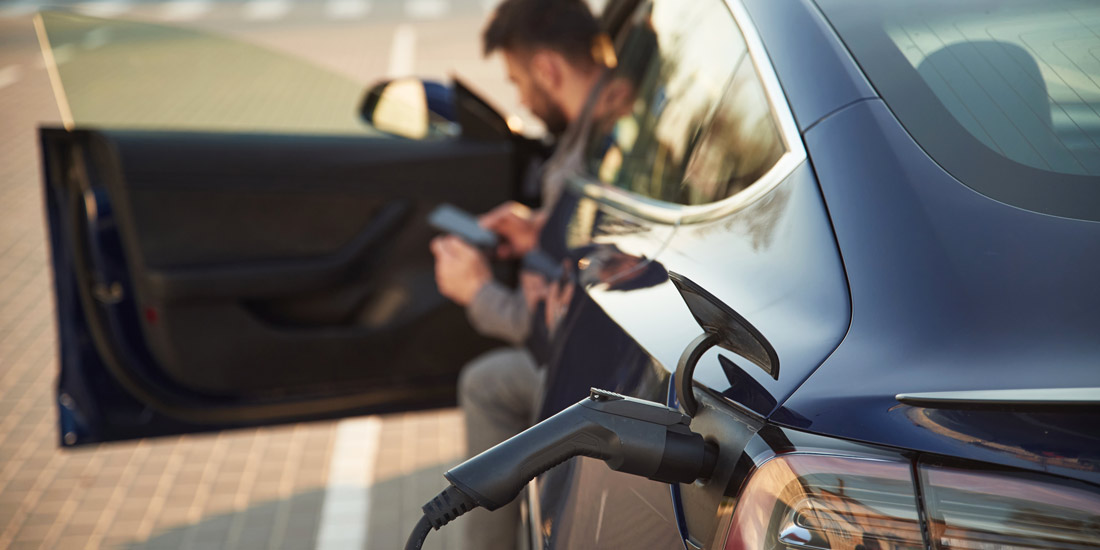
EV adoption is on the rise across the United States causing an increase in demand for reliable and consistent EV charging. While there are many options to choose from, some drivers are electing to utilize Level 1 charging stations for their daily needs. Let’s break down what Level 1 charging stations are and if they are worth purchasing as an EV driver or property owner.
What are Level 1 EV charging stations?
Level 1 charging stations (L1) are charging devices that use a 120-volt (120V) alternating current (AC) power source to charge an electric vehicle (EV). L1 charging stations are currently the slowest charging method available to EVs, as indicated by the level number. Level 2 and Level 3 (DCFC) charging stations offer 4 to 25 times faster charging speeds.
Are Level 1 EV charging stations worth buying?
While there are a handful of cases in which Level 1 charging stations can meet the needs of EV owners, most drivers find them insufficient. For the vast majority of EV drivers today, and new EV drivers projected to hit the roads in the coming years, Level 1 chargers are not worth the investment due to their slow charging speeds and the increasing battery sizes of newer EV models. Additionally, some property owners have safety concerns about this type of EV charging as many solutions are not professionally monitored or maintained, and because some drivers use long extension cords to reach an outlet.
Why Level 1 EV chargers don’t meet EV driver needs
The charging speed for an L1 charger is around 1.92 kW (kilowatts). EV batteries are measured in a kWh (kilowatt hour) capacity so charging them is based on how many kWs of power you can get consistently per hour. For example, if your EV needs 20 kWh of charge, getting it from a Level 1 charger would take around 10 hours. That’s pretty slow compared to Level 2 and Level 3 chargers at ~2.5 hours (7.68 kW) and ~25 minutes (50 kW) respectively. With EV batteries getting larger and larger every year, and some manufacturers reporting over 200 kWh for future models, going from 10% battery to full with a 200 kWh battery would take over 90 hours or about 4 days of continuous charging at a Level 1 charging station.
For the average EV on the market today, 1 kWh of battery provides around 3 miles of range. The average American drives roughly 40 miles per day. This equals around 13-14 kWh of battery power needed or around 7 hours of charging on an L1 charging station. While this may sound doable at first, it doesn’t consider factors like driving further than 40 miles in a day, not having consistent access to a 120V outlet, preparing for unexpected errands and emergencies, and general curveballs in life. And for some drivers living in multifamily communities, using an available outlet to charge a car may be prohibited.
What is the best EV charger for drivers?
To meet daily needs, a Level 2 charging station is the best solution. It is connected to a 240V power source, the same as many major appliances like an oven or washing machine, and provides up to 4 or 5 times the charging speed of a Level 1 charging station. This means EV drivers won’t need to charge every night but rather 2-3 times a week if they prefer. Depending on the model and capabilities (smart vs. dumb EV charging stations) of the charger, a L2 station can cost more to purchase and install, but with demand now shifting towards Level 2 stations, there are many rebates, incentives, and grants available to help offset the cost.
What the future looks like
Innovative for its time, similar to what dial-up provided the early stages of internet utilization and growth, Level 1 charging played a critical role in EV ownership and adoption. It gave EV drivers easy access to charging and opened the door for better and faster technologies to be developed. To prepare for the future, drivers and properties alike are looking to Level 2 and Level 3 charging stations for an experience that is faster and more reliable. For multifamily and commercial properties, installing Level 2 and Level 3 chargers is best done in partnership with a turnkey provider that can provide guidance on electrical capacity, design engineering, installation, and ongoing management.
Get Started with Chargie EV Charging Stations
With over 15,000 EV charging stations installed, we’re experts at installing and operating EV chargers at commercial and multifamily properties, including apartments, condos, shopping centers, offices, universities and more. These properties have specific needs for charging station installations, and Chargie helps you navigate those needs. We handle the entire process, from a site survey to designing your charging stations to completing the physical installation. We’ll even take care of finding and applying for available local rebates and incentives. We’ll maximize every program your property qualifies for to help offset hardware and installation costs, often completely eliminating them. If you’re ready to get started, reach out to us today.
























